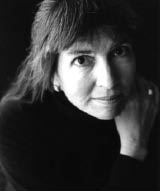Next story: Fathers & Sons...& Palookas: Resurrecting the Champ
Draped Universe by Deborah Meadows
by Patrick Dunagan

On the copyright page in the back of The Draped Universe by Deborah Meadows (Belladonna* #98) is a note which reads in part, “Belladonna* is a reading and publication series that promotes the work of women writers who are adventurous, experimental, politically involved…delicious to talk about, unpredictable, dangerous with language.”
The list of poets in the Catalog of previous titles (all 99 of them!) is both impressive and diverse (Alice Notley, Lisa Jarnot, Aja Couchois Duncan, kari edwards, Renee Gladman, etc). Meadows is joining good company and holds her own with the two sequences, “The Draped Universe” and “The Life of the Prophet,” which make up The Draped Universe. Each sequence is an investigative poetic journey into the Islamic world and, given the current political climate in this country, much needed. While the ineptness of the current White House continues to wage ceaseless havoc in the heart of the Islamic world, writing “The Draped Universe,” Meadows turns to look at just how “their obsession with textiles…can account for…characteristics of Islamic art,” presenting the care and concern of a people, “Purely transforming, brocade curtain/ changed at will/ opportune, to cherish curiosities/ among tents.”
Meadows seeks to better understand the culture, “toward dress and codes of/ people who use them” while respecting their love of beauty: “iridium, red words/ and motifs, partial/ of luster/world” When she turns to the prophet Muhammad, “The Life of the Prophet,” she retains this respectful, investigative entrance into the work, taking her words from an essay, “The Life of the Prophet: Illustrated Versions” by Priscilla P. Soucek. The two sequences tie together, a hopeful attempt at expanding the limited understanding of Islamic culture in this country. Meadows is smooth with her use of found text, playing what she leaves in off what is left out: “two groups below stacked baggage/ debates Christians often contested// anointing angel// main branches of the wall itself,/ her pregnancy/ illustrated in the Edinburgh manuscript// originally recognizes/ gift of revelation, challenge their monopoly of it/ stands rediscovered….” She’s making her argument by way of not quite stating it, allowing the poetic feeling of the words to not be restrained by contextual rendering. All the same, her point is taken, “of Adam, Noah/ antecedents/ of Solomon, Jesus/ show him.”
Deborah Meadows grew up in Buffalo, NY in a working class family, attended SUNY, Buffalo and worked in factory and various manual labor. Today she teaches in the Liberal Studies department at California State Polytechnic University, Pomona
|
Issue Navigation> Issue Index > v6n34: That's Lady Bunny, Honey (8/23/07) > Book Reviews > Draped Universe by Deborah Meadows This Week's Issue • Artvoice Daily • Artvoice TV • Events Calendar • Classifieds |









 Current Issue
Current Issue